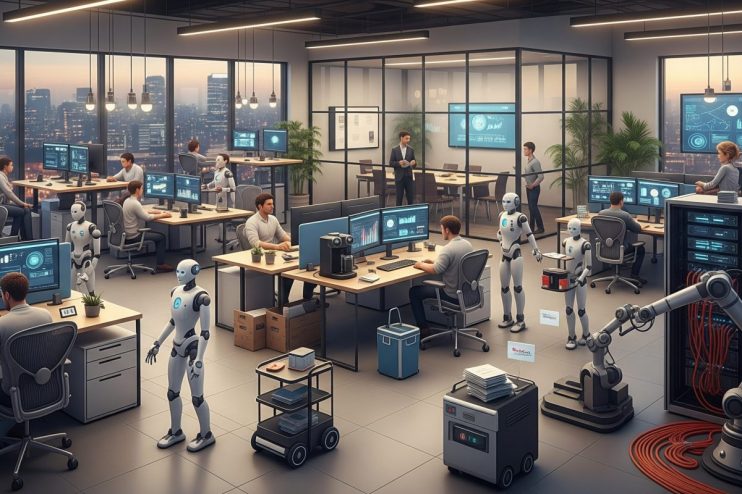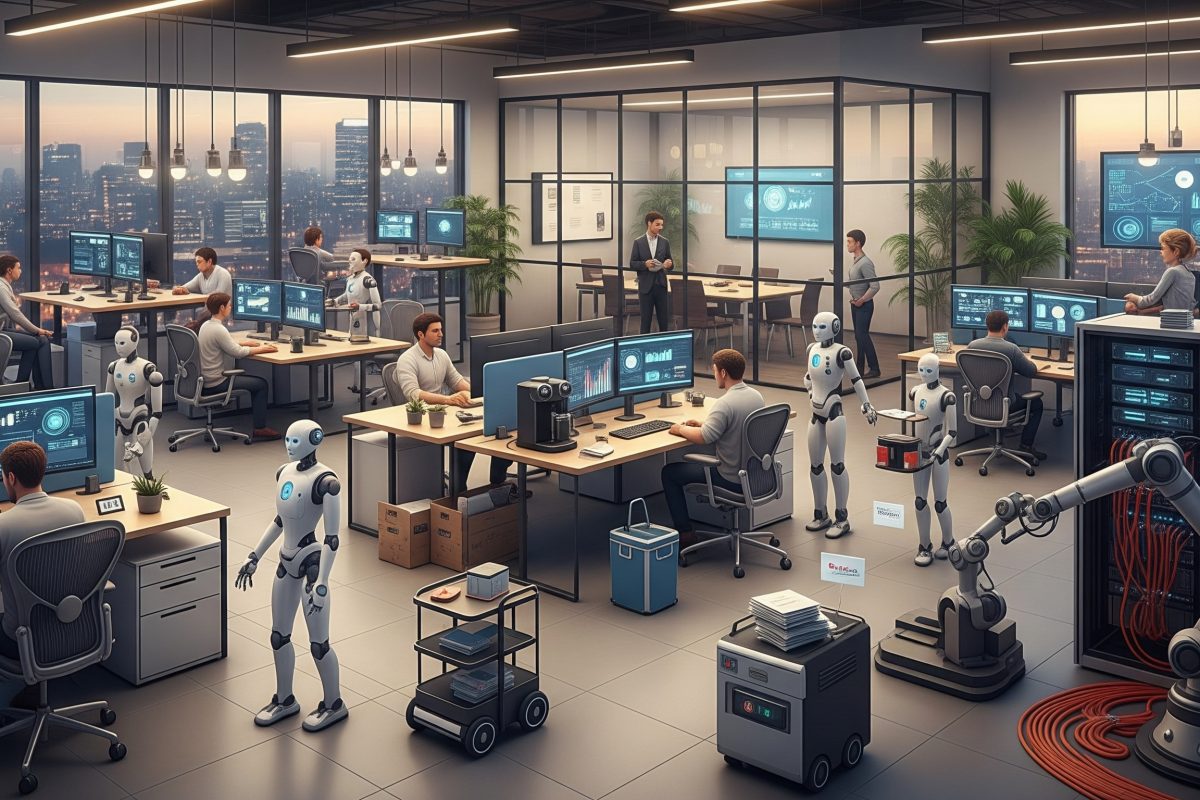Tuesday 26 August 2025 5:48 am
| Updated:
Tuesday 26 August 2025 6:55 am
Share
 (AI-generated image)
(AI-generated image)
1,000 days on from the launch of ChatGPT, Henrik Landgren asks what has changes, and what’s next, for the white collar workforce
1,000 days ago, ChatGPT launched and put artificial intelligence in everyone’s hands – no coding or expertise needed. In response, tech giants like Google declared a “code red” and economists at Goldman Sachs predicted a wave of mass unemployment. Today, we’re living the white-collar equivalent of the industrial revolution; however, the scale of transformation defies historical comparison.
Consider how fundamentally work has already changed – productivity gains eclipse anything we’ve seen before. ChatGPT allows us to generate written content in seconds, and workplaces now have access to specialised AI for their day-to-day – meaning tasks that consumed entire departments can be completed in minutes. Analysis requiring teams of specialists happens continuously, automatically and could soon be produced with superior accuracy.
AI means fewer employees can do far more
Just as machine operators needed different skills from production line workers, today’s professionals require fundamentally different capabilities. Amid a systemic reconstruction of cognitive work, the most valuable employees have changed. As well as specific expertise in their industry, workers now have to evolve to use AI to multiply their output.
Recruitment teams now use AI to screen candidates, conduct assessments and match skills to roles – managing a volume that once required an entire department. A consultant deploys AI to research entire industries, build financial models and create client presentations – work that once required junior teams working countless hours.
As a result, many core business principles no longer apply. A company’s headcount used to be an indicator of the revenue it made to pay staff. But last month, a London-based biotech company raised £2.8m with just two full-time employees. These AI-powered ‘tiny teams’ are fast-becoming the norm.
The graduate landscape post-ChatGPT
So what does this mean for students and new graduates? UK unemployment rose to 4.7 per cent in June, a marked increase compared to November 2022 when ChatGPT hit the mainstream. There are other factors at play, and plenty of jobs that have so far been left untouched by AI.
But in white-collar industries, administrative tasks that would typically have occupied entry-level workers are being automated. Graduates will still bring expertise in their chosen discipline, but they will now also require an understanding of AI and an ability to use it. Otherwise, they will struggle to secure roles at big companies that are already using it.
More technical students face a different challenge. Traditional coding skills will always matter, but the previous job security provided to software engineers and developers is no longer a guarantee when AI can write the code itself. Instead, these graduates can use AI to accelerate their learning and to supercharge the amount of work they produce. They will lead the next generation of the white collar workforce.
Read more
ChatGPT-5 launch took the shine off OpenAI
Looking ahead another 1,000 days, it’s hard to predict the future. But in some ways, the path becomes clearer.
What about the next 1,000 days?
Today’s top employees are either able to produce vast output through AI orchestration, or have industry-specific expertise too nuanced for AI to replicate. Both are rare, both command premiums and neither will remain scarce for long. That’s why AI-native workers are leaping past colleagues who dig into the old ways.
That’s not to say that advancements in AI will decimate the jobs landscape for future graduates. These past few years have marked the earliest stages of a major workforce realignment, which has seen the entry-level job market contract. Those roles will still exist in a few years, but they will look very different to today.
What we recently considered to be an advanced calibre of AI is already shifting to become the bare minimum for many professional positions. The tasks that aren’t sophisticated today won’t exist – and most people will wonder why humans ever did them.
Just as we cannot imagine white-collar workers today without computers, the next generation won’t conceive of work without AI orchestration. The efficient workers will achieve exponentially more than average, but crucially, the average itself is rising. Career trajectories will maintain familiar shapes – clear progressions and development paths – but the skills required at each level will be unrecognisable.
The first wave of steam engine operators still shovelled coal, but they produced a thousand times the power of manual workers. Today’s graduates face the same inflection point, and will be tasked with learning to direct the modern AI engines.
Even the most sophisticated AI will need human judgment to know which problems matter. Every breakthrough requires someone to spot the opportunity, build the team and convince others to care. These fundamentally human skills become more valuable as routine work disappears.
The next generation won’t just adapt to AI, but direct it to solve today’s problems – and have the luxury of starting on the next generation’s problems. Their careers will look different to ours, just as ours look different to our grandparents’. The difference? This change will happen in years, not generations.
Henrik Landgren is co-founder and CPTO at Gilion. He was previously Spotify’s first VP of Analytics
Read more
Call me converted, I’ve finally found a positive use for ChatGPT
Similarly tagged content:
Sections
Categories
People & Organisations
